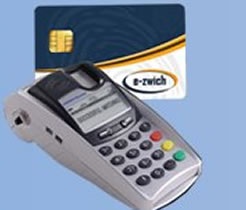Biometric technology is fast becoming the preferred choice of authenticating the identity of an individual. Globally, biometric technology is gradually replacing traditional passwords and PIN-based access in mobile banking and at ATMs.
Biometrics are automated methods of recognising customers through their biological characteristics and traits such as fingerprints, finger vein patterns, the iris, voice-recognition etc. Biometric characteristics are unique for every individual and difficult to forge, which is why biometric verification and authentication is being used by many organisations worldwide.
The recent use and patronage of biometric technology by some government agencies in Ghana is just a mirror of the global trend. It is not mere coincidence but a clear manifestation of the superiority of biometric cards in terms of security, robustness and convenience compared to others.
Rapid digitisation of banking services combined with the continued need to adopt stricter customer identification procedures, to prevent identity theft and fraud, has set the table for biometric identification technology to become an integral part of financial services security platforms.
Research has shown that many banks worldwide are using biometrics with their banking systems to authenticate employees and customers. Fifty-two percent (52%) of the banks utilising biometrics are located in Asia. Japan has more than an estimated 15 million customers using biometric authentication for banking transactions.
Banks in Mexico, South America, Africa and the Middle East are also moving toward the use of biometric identification technology because of its ability to offer more security than traditional personal identification numbers (PINs).
In Ghana, not much progress has been made in the financial sector with regard to the use of biometric cards -- even though the Bank of Ghana became the first Institution to introduce a biometric smart-card.
The e-zwich is arguably the first major biometric technology of national character in Ghana. Since its introduction in 2007, there have been others like the National Identification Card, the biometric passport, biometric voters register; and in more recent times, the biometric Social Security and National Insurance Trust (SSNIT) card and biometric National Health Insurance card.
Ironically,the patronage of the only national biometric payment system does not match the kind of benefits Ghana stands to derive from it. The system allows a holder of an e-zwich smartcard to carry out electronic transactions at any e-zwich Point of Sale (POS) terminal or ATM.
It also allows the e-zwich smart cardholder to access banking services at any bank throughout Ghana -- irrespective of whether that bank issued the smartcard or not.
The e-zwich offers a suite of electronic payment and banking services accessible from a Point of Sale (POS) terminal or ATM. These include: retails, bill payments, funds transfer and remittances, payment distribution, deposits, withdrawals and savings.
One of the key reasons biometric technology is winning the debate is that payment system fraud is a huge issue globally, with Ghana being no exception. Banks and financial institutions are suffering from network security and data breaches worldwide.
According to a recent Global Consumer Fraud survey by ACI Worldwide, of all cardholders -- debit, credit, prepaid -- 27% have experienced card fraud in the last five years; and the number increased by 14% in 2014. Global statistics suggest that credit card and debit card fraud resulted in losses amounting to US$11.27billion. It has been proven that cards with a magnetic stripe base, which is very common in Ghana, are prone to fraud.
Banks in Ghana can therefore save consumers the stress associated with card fraud by easily adopting biometric technology, and more importantly encouraging use of the e-zwich biometric card. This is because both global trends and efficacy seem to be working in favour of biometric technology.
In Ghana today over one million people have the e-zwich card, and counting these cardholders for regular transactions will be good business for any financial institution. The e-zwich card is interoperable, which means you can use it in any of the banks and several point of sales devices as well as the ATMs with fingerprint readers.
A number of banks are converting their ATMs to be e-zwich compliant, which will increase the outlets for cardholders. Payments via e-zwich are faster. Funds can be loaded the same day disbursements are made. It is convenient because as long as one has an e-zwich smart card, one always has access to money. If the cardholder loses their smartcard, funds are safely transferred onto a new card: minimising risk of losing cash through robbery.
Outside the banking sector, the e-zwich has served as an important tool in paying allowances for National Service personnel. It has significantly addressed the payroll fraud that bedevilled the Institution, and chances are that sooner or later public sector workers will also receive their remuneration on the biometric smart card.
It is also an effective channel for institutions to pay salaries, commissions, dividends and various payments to people at different geographical locations, because you are certain the money can only be accessed by the person whose fingerprints have been encrypted to use the card. Indeed, there are several uses to which the biometric smart card and the technology in general can be put, and we only need to keep exploring.
The biometric technology has obviously gained currency because of the huge advantage it has over other systems. And the story cannot be different in the financial sector.
If there was such a clamour for a biometric voters’ register, then the financial institutions should be leading the campaign to transfer that same interest to their sector. The world is going biometric, and Ghana has already taken the bold step with the e-zwich biometric smart card. The least we can do is to maximise the technology and derive its full benefit.
By Maame Afia Asantewaa
Business News of Wednesday, 13 May 2015
Source: B&FT
The Biometric debate: How key is it for the delivery of financial service

















